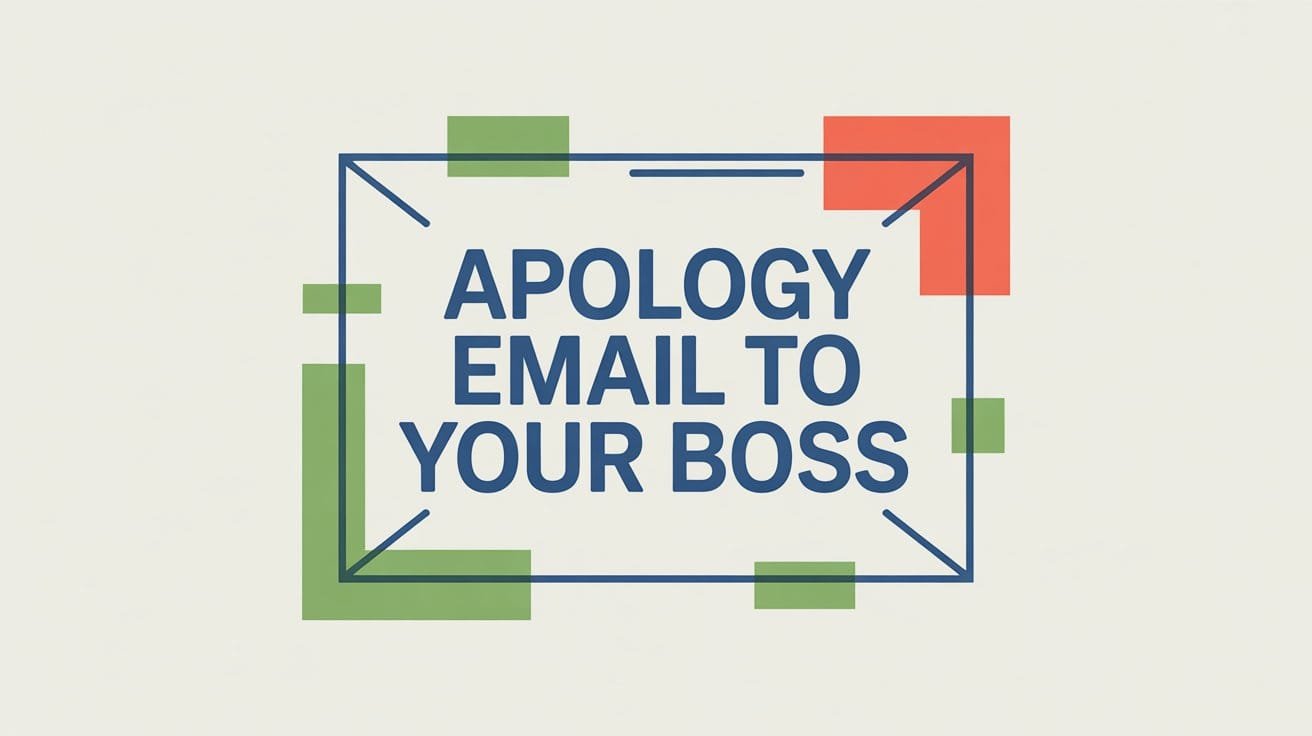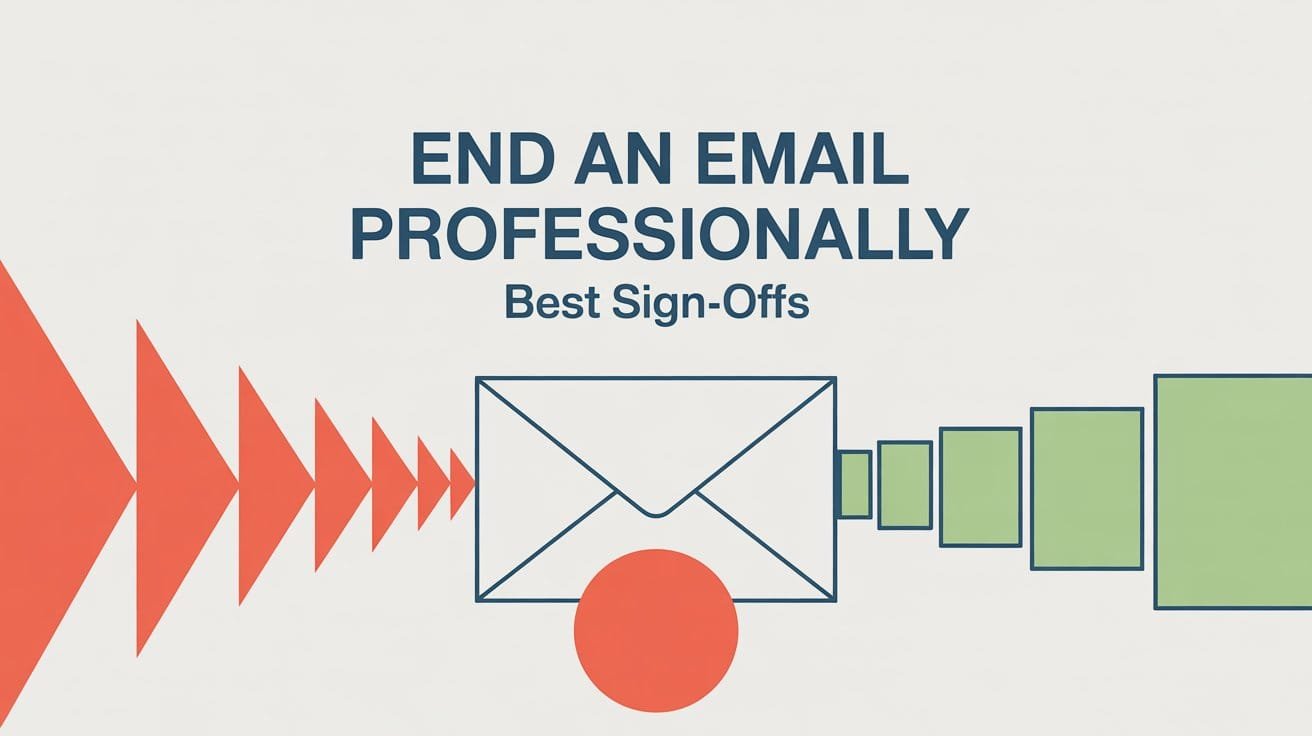Mistakes at work happen, but how you handle them speaks volumes. When the person affected is your boss, the stakes are even higher. A well-written apology email can help you take ownership, show maturity, and maintain trust.
This guide will walk you through how to write a professional apology email to your boss. You’ll learn what to include, how to structure your message, and how to strike the right tone without sounding defensive or overly emotional. Clear, respectful communication can go a long way toward moving forward after a mistake.
When to Send an Apology Email to Your Boss
Not every workplace mistake needs an email, but when it affects your manager’s trust, time, or planning, a written apology is often the best response. It shows you’re taking the situation seriously and are committed to fixing it.
Here are common situations where sending an apology email to your boss is appropriate:
After Missing a Deadline
If your delay disrupted the project timeline or created pressure for others, a direct apology is necessary, even if the mistake was unintentional.
After Failing to Communicate Properly
Whether you forgot to update your boss on a task or miscommunicated project details, a quick apology can help restore confidence in your communication skills.
After Displaying Unprofessional Behavior
If you were short-tempered, dismissive, or acted inappropriately during a meeting or message, an apology email allows you to address it calmly and take responsibility.
After Ignoring Instructions or Overstepping Boundaries
Not following directions or acting without approval can lead to misunderstandings. A sincere message acknowledging the lapse can help reset expectations and show accountability.
What to Include in an Apology Email to Your Boss
Writing to your boss requires more than just saying “sorry.” The message should be professional, respectful, and solution-oriented. Here’s what to include:
A Respectful Subject Line
Keep it simple and clear. Your subject line should reflect professionalism and purpose.
Example: Apology for Missing the Project Deadline
A Direct but Professional Apology
Start your message with a sincere apology. Avoid over-apologizing, but be clear that you recognize the mistake.
Example:
I want to apologize for not completing the task on time.
Acknowledgment of the Impact
Let your boss know that you understand how your mistake affected the team, timeline, or outcome.
Example:
I realize this may have delayed the team’s progress and added extra pressure to your schedule.
A Brief Explanation (If Helpful)
It’s okay to provide context, but avoid justifying the mistake or blaming others.
Example:
I misjudged the time needed to complete the final review, and I take full responsibility for that.
Your Corrective Action or Plan
Explain what you’re doing to fix the issue, or what you’ll do differently next time.
Example:
I’ve adjusted my schedule to ensure all future tasks are submitted a day ahead, and I’ve created a checklist to stay on track.
A Respectful Closing
End on a constructive note. Express appreciation for their time or patience.
Example:
Thank you for your understanding. I’ll make sure this doesn’t happen again.
Apology Email Template to Your Boss
Subject: Apology for [Brief Description of the Issue]
Dear [Boss’s Name],
I want to sincerely apologize for [clearly state the issue—e.g., missing the project deadline, not informing you about a delay, etc.]. I understand that this [mention the impact—e.g., affected the team’s progress, disrupted the timeline, etc.], and I take full responsibility.
The issue occurred because [brief, honest explanation if helpful], and I’ve already [mention corrective action—e.g., completed the task, informed the client, adjusted my process, etc.]. I’m taking steps to ensure this doesn’t happen again moving forward.
Thank you for your understanding, and I appreciate your time and support. Please let me know if there’s anything else I should follow up on.
Best regards,
[Your Name]
Examples of Apology Emails to a Boss
Apology for Missing a Deadline
Subject: Apology for Delay on Monthly Report
Dear Mr. Taylor,
I want to apologize for missing yesterday’s deadline for the monthly report. I know the report was needed for your meeting with the regional team, and I take full responsibility for the delay.
The final review took longer than expected, and I should have communicated the timing more clearly. I’ve submitted the completed version this morning and made a checklist to better manage future timelines.
I appreciate the opportunity to correct this.
Best,
Ananya
Apology for Poor Communication
Subject: Apology for Not Updating You on Client Status
Dear Ms. Chen,
I’m sorry I failed to update you on the status of the Ortiz account last week. I realize this created confusion during your client call and reflected poorly on our coordination.
I’ve now shared the updated notes with both you and the account team, and I’ve added scheduled updates to ensure this doesn’t happen again.
Thanks for pointing it out, and I appreciate your understanding.
Sincerely,
Nikhil
Apology for Unprofessional Behavior
Subject: Apology for My Conduct in Today’s Meeting
Dear Mr. Grant,
I want to apologize for my tone during this morning’s team meeting. I recognize that I came across as dismissive, and that wasn’t appropriate, especially in a group setting.
I’ve reflected on the feedback and will be more mindful going forward. I respect your leadership and the standards you’ve set for our team.
Thank you for addressing it directly. I appreciate the opportunity to improve.
Respectfully,
Rhea
Tips for Writing to Your Boss
Be Clear and Brief
Your boss doesn’t need a long explanation, just a direct, respectful acknowledgment of what went wrong and what you’re doing about it. Keep your message to the point.
Own the Mistake Without Over-Apologizing
Apologize sincerely, but don’t overdo it. Avoid phrases like “I’m terrible at this” or “I completely failed.” Stay professional and solution-oriented.
Focus on Next Steps
What matters most is what you’re doing to fix the issue or avoid repeating it. A short, forward-looking sentence helps show growth and maturity.
Match the Tone to the Relationship
If your boss prefers formal communication, keep your tone polished. If they’re more relaxed, you can sound human, but still professional.
Proofread Before Sending
Spelling or grammar mistakes in an apology email can undercut your message. Always review your email before clicking send.
Common Mistakes to Avoid When Apologizing to Your Boss
Making the Apology About You
Saying things like “I feel awful” or “This has been really hard on me” shifts focus away from the issue. Keep the attention on the impact your mistake had on your boss or the team.
Offering Excuses Instead of Accountability
It’s fine to explain what happened, but avoid blame-shifting. Phrases like “I was waiting on someone else” or “No one told me” can come across as avoiding responsibility.
Using Casual Language or Emojis
Even if your boss is informal in person, an apology email should maintain a professional tone. Avoid slang, abbreviations like “FYI,” or symbols that may appear careless.
Ignoring the Power Dynamic
Apologizing to a peer is different from apologizing to a superior. Your message should reflect respect for their position and the weight your mistake may carry in their role.
Following Up Too Aggressively
One follow-up is fine if needed, but don’t pressure your boss for forgiveness or a response. Let your actions demonstrate improvement moving forward.
FAQs
Should I send an apology email or speak to my boss in person?
If the mistake was minor, email is usually appropriate and provides a written record. For more serious issues, or if your boss prefers direct communication, you might start with a short apology in person and follow up with an email for clarity and accountability.
Can I use the same format when apologizing to a senior executive?
Yes, but keep it even more concise and formal. Senior leaders appreciate directness, so remove small talk and focus on what happened, what you’ve done to fix it, and what’s next.
What if my boss doesn’t reply to my apology?
That’s not unusual. Some managers acknowledge it silently and move on. As long as you’ve taken responsibility and followed through on your next steps, you’ve done your part.
Is it okay to show emotion in an apology email?
You can be sincere and respectful, but avoid overly emotional language. Keep the focus on professionalism, especially in written communication.
What if I make a second mistake after already apologizing once?
Be honest and address it again, but also show that you’re actively working on improving. Repeated mistakes matter less when you’re clear about how you’re learning from them.



